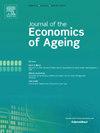Population aging, living arrangements, and inequality: The role of familial transfers in South Korea
IF 2
3区 经济学
Q2 DEMOGRAPHY
引用次数: 0
Abstract
Many studies have shown that population aging leads to an increase in inequality because inequalities in income and consumption tend to increase with age. However, the effect of population aging on consumption inequality among the elderly may depend on the strength of the old-age support system, as transfers can reduce inequality. Although the role of public transfers has been widely examined, little is known about the role of familial transfers in reducing inequality. This study constructs National Inclusion Accounts (NIA) by using South Korea’s micro-level National Transfer Accounts (NTA) data by living arrangement and household income level and examines the role of familial transfers in the old-age support system and in reducing inequality. The results suggest that intergenerational familial transfers in extended households help to reduce consumption inequality among older people. By income level, older people in low-income households are more dependent on public transfers. Older people in high-income nuclear households rely more heavily on their own assets for consumption, and those in high-income extended households are more dependent on familial transfers. A counterfactual analysis suggests that consumption inequality among older people has increased over time in large part due to a rapid decline in extended households in South Korea.
人口老龄化、生活安排和不平等:韩国家庭转移的作用
许多研究表明,人口老龄化导致不平等的增加,因为收入和消费的不平等往往会随着年龄的增长而增加。然而,人口老龄化对老年人消费不平等的影响可能取决于养老支持系统的强度,因为转移支付可以减少不平等。尽管公共转移的作用已被广泛研究,但人们对家庭转移在减少不平等方面的作用知之甚少。本研究利用韩国微观层面的国民转移账户(NTA)数据,通过生活安排和家庭收入水平构建国民包容账户(NIA),并考察家庭转移在养老保障体系和减少不平等方面的作用。结果表明,大家庭的代际家庭转移有助于减少老年人之间的消费不平等。按收入水平划分,低收入家庭的老年人更依赖公共转移支付。高收入核心家庭的老年人更多地依赖于自己的资产进行消费,而高收入大家庭的老年人则更多地依赖于家庭转移。一项反事实的分析表明,随着时间的推移,老年人之间的消费不平等加剧,这在很大程度上是由于韩国大家庭的迅速减少。
本文章由计算机程序翻译,如有差异,请以英文原文为准。
求助全文
约1分钟内获得全文
求助全文
来源期刊

Journal of the Economics of Ageing
Multiple-
CiteScore
4.10
自引率
4.50%
发文量
46
审稿时长
49 days
期刊介绍:
The Journal of the Economics of Ageing (JEoA) is an international academic journal that publishes original theoretical and empirical research dealing with the interaction between demographic change and the economy. JEoA encompasses both microeconomic and macroeconomic perspectives and offers a platform for the discussion of topics including labour, health, and family economics, social security, income distribution, social mobility, immigration, productivity, structural change, economic growth and development. JEoA also solicits papers that have a policy focus.
 求助内容:
求助内容: 应助结果提醒方式:
应助结果提醒方式:


